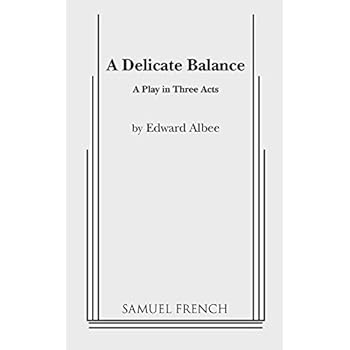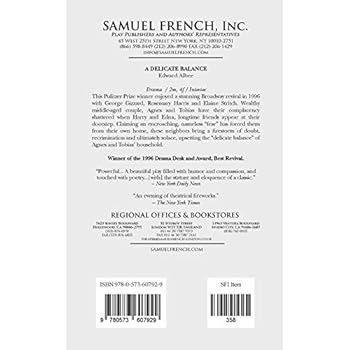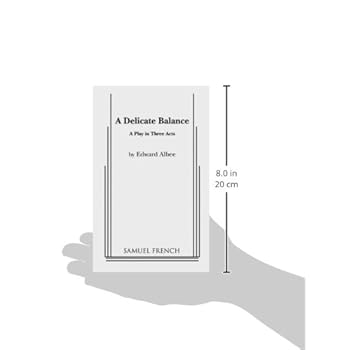A Delicate Balance
Category: Books,Arts & Photography,Performing Arts
A Delicate Balance Details
Edward AlbeeFull Length, Drama Characters: 2 male, 4 female Interior Set This Pulitzer Prize winner enjoyed a stunning Broadway revival in 1996 with George Gizzard, Rosemary Harris and Elaine Stritch. Wealthy middle-aged couple, Agnes and Tobias have their complacency shattered when Harry and Edna, longtime friends appear at their doorstep. Claiming an encroaching, nameless "fear" has forced them from their own home, these neighbors bring a firestorm of doubt, recrimination and ultimately solace, upsetting the "delicate balance" of Agnes and Tobias' household.Winner of the 1996 Drama Desk and Award, Best Revival. "Powerful...A beautiful play filled with humor and compassion, and touched with poetry...[with] the stature and eloquence of a classic."-New York Daily News "A brilliant play."-New York Post "An evening of theatrical fireworks."-The New York Times

Reviews
Edward Albee's "A Delicate Balance" has only a few of the theatrical fireworks that animate his more renowned, first full-length play, "Who's Afraid of Virginia Woolf?" There are no bottles smashed, no attempts at strangulation, no seduction scenes. There is one brief episode with a gun, but it is somewhat less shocking than the gun episode in "Who's Afraid". Nevertheless, both plays are based on the results of Albee's scrutinizing of the nature of our fears and the dangers of our complacencies. In "A Delicate Balance", Agnes and Tobias, each in his/her own way, try to keep the social and psychological balance that has nourished their notions of friendship, parenthood, love of sibling, and material comfort. When friends Harry and Edna invade their space; when Agnes' sister's alcoholism surfaces; when daughter Julia's fourth impending divorce crosses their threshhold, the balance begins to tip and their lives seem at the point of capsizing completely. All of these situations and states are handled beautifully through Albee's brilliant use of language and structure. One finishes the play with an urge to re-examine the abstract notions that keep us ALL balanced.




